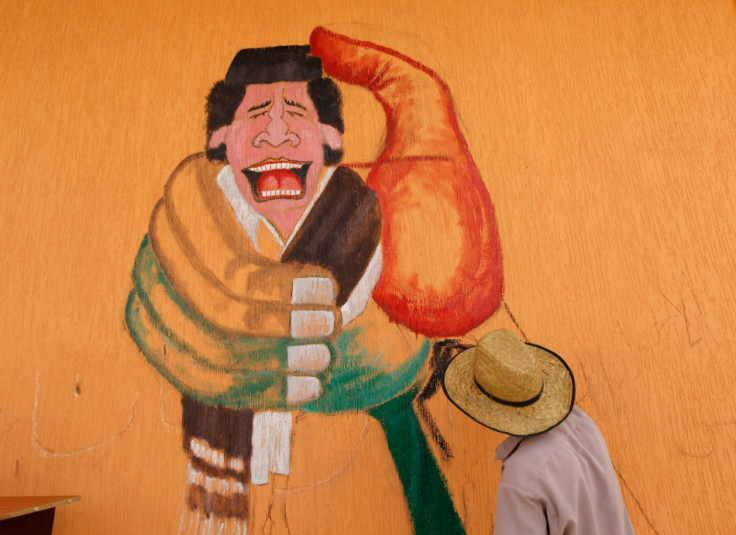Are Reports of Gaddafi's Imminent Departure Just Propaganda?

According to U.S officials, rebel forces that captured towns from Nalut to Kikla in Libya's western Nafusa Mountains managed to cut a vital crude oil pipeline that feeds one of the government's major refineries in the town of al-Zawiya, greatly impeding the Libyan government's ability to continue fighting the rebels.
The Associated Press reported that US intelligence source say that severe fuel shortages could occur within a month, which could force the Libyan leader to step down.
The news agency also revealed that U.S official sources, speaking on condition of anonymity, said that following Turkey's move last week to seize hundreds of millions of dollars held in the Arab Turkish Bank, Muammar Gaddafi's financial situation is now becoming so critical that he cannot access actual cash and was forced to issue letters of credit to pay his debtors, including fuel importers.
U.S officials also told the Associated Press that Intelligence analysts see the fuel and cash shortages as the first veritable indication that the rebels, who have in the last few weeks gained new territories, might be able to capitalise on the leader's financial decline. Without fuel or money, many now think that Gaddafi loyalist forces and member of the government could now turn against the leader.
The U.S officials said morale among Gaddafi's soldiers was poor, according to troops who were captured or defected, while commanders are not pleased with the quality of forces they have and are not making major gains on the battlefield, the officials said.
Meanwhile Paris has upped its diplomatic attack on the leader and France's foreign minister Alain Juppe told French journalists that Gaddafi was prepared to leave power, citing Libyan emissaries who have approached the French government.
Despite the French minister and the U.S officials' claims, many doubt that the leader, who said he would not leave Libya, is really preparing to step down. Rumours about him leaving and running out of money have circulated in the press since ever the conflict started, but five months later Gaddafi is still in power and still standing strong.
Also just as Juppe said that the leader was seriously considering stepping down, France shifted from its previous position that imposing Nato military force on the regime would be sufficient to force Gaddafi out.
Paris now says that it always wanted a political solution to the conflict and that negotiations are under way to finalise the details of the leader's departure.
Also while reports concentrate on Gaddafi, the rebels, too, are facing supply problems.
They have been asking for more money, medicine, food and fuel for weeks and while they are busy trying to hold the new gained territories and survive, they are struggling to govern the areas they already control.
Also as Tripoli fights back, Libyan officials warned that the rebel-controlled eastern half of the country could be cut off from water supplies without a truce to allow for maintenance work on power plant pumping water up from the desert.
About 70 per cent of the country relies on water drawn from underground aquifers deep in the southern desert, and the plant powering it in the east is falling apart, said the Libyan agricultural minister.
So is Gaddafi really about to crumble or are the latest reports just part of a diplomatic strategy and propaganda aimed at Gaddafi, his entourage and supporters?
© Copyright IBTimes 2024. All rights reserved.





